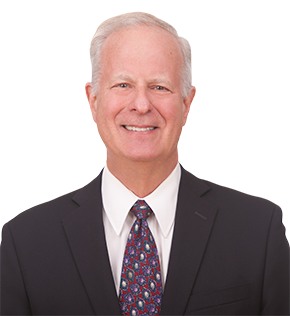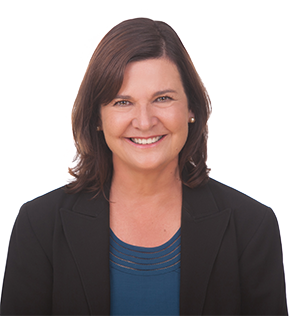Legal Article | Estate Planning for Your Pet
By Hoge Fenton | 02.1.2022 | Estates and Trusts

Many of us consider our pets as part of our family. As such, you may want to arrange for your pets’ support and care in the event you become unable to personally provide for them. Estate planning provisions that provide for the support and care of pets that may outlive you can be included in a will or trust agreement. Existing estate planning documents can also be amended to add these provisions.
In California, animals cannot own property. Therefore, you cannot leave assets to your pets outright. In the Estate of Russell (1968) 69 Cal. 2d 200 California courts said that an outright gift to an animal is void. In Russell, the testator’s dog could not be a beneficiary of the testator’s will; California law limited disposition of property to “any person.”
So how can you arrange for your pets’ support and care? One way is through a pet trust. Other options include gifting to a trusted person or continuing pet care programs. The three options are described below.
Outright Gift to a Trusted Person
One option is an outright gift of your pets along with funds to support your pets. You may leave your pets to a trusted friend or relative along with a cash gift. This can be done in a revocable trust or a will. There are drawbacks to this approach: the beneficiary of your pets may decide to use the funds for some other purpose, and there is no assurance that the person receiving your pets will keep and properly care for them.
Continuing Pet Care Programs
Various “continuing pet care programs” offer care after a pet owner’s death. For example, in return for annual donations or a testamentary gift, the San Francisco Society for the Prevention of Cruelty to Animals (SFSPCA), through its Sido Program, provides continuing care including medical and placement after a pet owner’s death. The SFSPCA’s Sido Program was inspired by Sido, a dog whose owner, believing that no one could care for her pet as well as she, provided in her will that at her death Sido be humanely euthanized. The SFSPCA successfully challenged provisions of this will.
The Pet Trust
Over 42 states have enacted statutory pet trust legislation. California specifically authorizes creation of a trust for the care of animals, and defines animal as “domestic or pet animal.” Pet trusts are valid as enforceable trusts and may exist for the lifetime of the animal. The law provides for enforcement mechanisms by persons or entities named in the will or by the court, which has the power to appoint a person or entity, including an organization that has as its principal activity the care of animals, to enforce the trust. Periodic accountings, reports, or registrations are not required for trusts with assets not exceeding $40,000, unless ordered by the court or required by the trust instrument. If required, accounts are to be provided to the persons who would receive the unexpended property if the pet were deceased.
A California pet trust must terminate when no animal living on the date of the settlor’s death remains alive. The trust instrument should specify how the remaining trust corpus should be disposed of at the pet’s death; otherwise, the assets will be distributed as provided in the residuary clause or distributed to the trustor’s heirs.
A pet trust can also come into play before your death if you were to become incapacitated and unable to care for your pets. The provisions in a will do not have any legal effect until your death.
A California attorney can assist you in drafting a pet trust. Some of the decisions to think through in this process include:
- Choosing a caretaker. This is the most important decision to make. This person will have custody of your pets and be responsible for day-to-day care. Always ask the person you consider naming if they are willing to take on this responsibility. Name an alternate as well, in case your first choice isn’t available when the time comes.
- Provide specific instructions for the caregiver. Describe in detail your pets’ standard of living and care. Document, for example, their favorite foods, favorite toys, and sleeping arrangements.
- Be sure to adequately identify your pets, such as through microchips, to prevent fraud.
- Determine the amount of funds needed to administer the pet trust. Consider your pets’ ages and conditions. If the amount you set is unreasonably high, family members may challenge the trust in court, and a judge might reduce the balance of the pet trust. In 2008, a judge reduced a trust fund for Leona Helmsley’s dog from $12 million to $2 million providing the difference to go to Ms. Helmsley’s foundation.
- Provide instructions for the final disposition of your pets, for example, burial or cremation.
- If you leave California, consult with local counsel to determine whether your pet trust must be modified in your new place of residence.
Hoge Fenton’s Estates & Trusts attorneys provide sophisticated legal, tax, and business services, as well as skilled counseling and advice. We work closely with you – and your other professional advisors – to ensure you understand the process. We implement creative yet conservative solutions to help you achieve your desired result. Our knowledge is broad and deep, including expertise in taxation, foreign assets, and cross-border relationships. Our experienced attorneys are trusted by business owners, real estate investors, and others who have complex legal situations.
Our Trust and Estate Litigation Group offers clients a team of lawyers widely recognized as being among the most distinguished, experienced, and successful litigators in the field of trusts, estates, and related legal areas. This area of practice requires a high level of expertise that many estate planning lawyers are not trained to handle. Our trial lawyers have many years of experience in the probate courts. We possess in-depth knowledge of the substantive law and unique procedures applicable to probate and trust disputes.
Meet Our Team
 |
Heather L. Boshears works closely with sophisticated clients to prepare comprehensive estate plans, handle post-death administrations, and resolve disputes before reaching trial. She advises clients in tax matters including estate and gift tax and real property reassessments.
Heather is a Certified Specialist in Estate Planning, Trust and Probate Law as certified by the State Bar of California Board of Legal Specialization. She is a Certified Public Accountant (CPA), licensed in Colorado. Her additional experience as an auditor and operations officer makes her a valued resource for her clients. Heather is a top-rated Estate Planning & Probate Attorney selected to Northern California Super Lawyers “Rising Stars” in 2017, 2018, 2019, and 2020. She was listed in Best Lawyers in America 2021: Ones to Watch, Trust and Estates. |
 |
Denise E. Chambliss is the Chair of Hoge Fenton’s Estates & Trust and Trusts and Litigation practice groups. Denise has been named a “Northern California Super Lawyer” each year starting in 2015. No more than five percent of the lawyers in the state are selected by the research team at Super Lawyers to receive this honor each year.
Denise is an experienced trial lawyer who maintains a general civil and business trial practice, with a focus on trust and estate litigation representing individual and corporate trustees, as well as executors and beneficiaries. She has had numerous successful trials as well as many successful mediations on behalf of her clients in cases. In trust and estate matters, Denise has extensive experience in cases involving demand for trust accounting, trustee mismanagement, breach of fiduciary duties, removal of trustees, surcharge claims, challenges to estate planning documents based on lack of capacity or undue influence, and financial elder abuse. |
 |
J. Timothy Maximoff counsels his clients in estate planning and estate and trust administration, tax, business, and related matters. His focus is on practical planning that addresses his client’s unique family and economic situation and goals. Tim uses his 30 years of experience to explain to clients the practical issues, complex law, and tax rules that impact their situation and help reach their planning goals. Where appropriate, Tim introduces his clients to more advanced planning tools that could increase benefits to his clients and their family, help reduce the tax impacts and address his client’s concerns about asset management, preservation of assets, or beneficiaries’ unique situations. Ultimately, Tim applies the most effective tools for each client’s specific situation, including permanent trusts, gifts, family partnerships LLCs to hold and manage businesses and properties, as well as planning for charitable gifts, charitable trusts, and private foundations.
When the time comes, Tim works with his clients to administer estates and trusts of family members and makes sure the plans are implemented effectively. When the administration of an estate or trust does not go smoothly, Tim works with clients to resolve estate and family business disputes or unexpected tax or liability issues and teams with our firm’s excellent trust and estate litigators in contested matters. |
 |
Nazar Ghosseiri is based in our San Mateo office, and her practice focuses on estate planning, trust administrations, probates and conservatorships. Nazar serves the needs of individuals and professional fiduciaries in trusts & estates throughout the Peninsula. The State Bar of California Board of Legal Specialization has certified Nazar as a Specialist in the areas of Estate Planning, Trust and Probate Law. |
 |
Steven D. Siner is a veteran trial attorney who has litigated hundreds of civil matters through the state and federal courts in California. Because of his litigation expertise, he is able to counsel his clients to help them avoid the expensive uncertainties of litigation. He is often consulted by litigation attorneys for assistance on substantive business and financial issues.
In his estate planning and wealth management practice, Steve works with his clients, and their accountants, insurance professionals, and financial advisors, to develop and implement strategies for the protection and transfer of their wealth to successive generations. With the breadth and depth of his experience, Steve is able to effectively address the multitude of issues that arise in personal, business, and real estate matters. A long-time Tri-Valley resident, Steve is also a frequent guest lecturer at UC Berkeley Extension classes for financial planners. |
 |
Julie Y. Wann is a member of Hoge Fenton’s Corporate, Tax, and Estates & Trusts groups. She focuses on individual, partnership, and corporate taxation, and formation of limited liability companies, partnerships, and corporations. Julie advises individuals in asset protection, wealth transfer, and tax planning, and entities in sales, purchases, and restructurings. She structures real property transfers that preserve the real property tax basis. She also provides taxpayer representation in tax controversies. |
This information is provided as an educational service by Hoge Fenton for clients and friends of the firm. This communique is an overview only, and should not be construed as legal advice or advice to take any specific action. Please be sure to consult a knowledgeable professional for assistance with your particular legal issue. © 2021 Hoge Fenton











